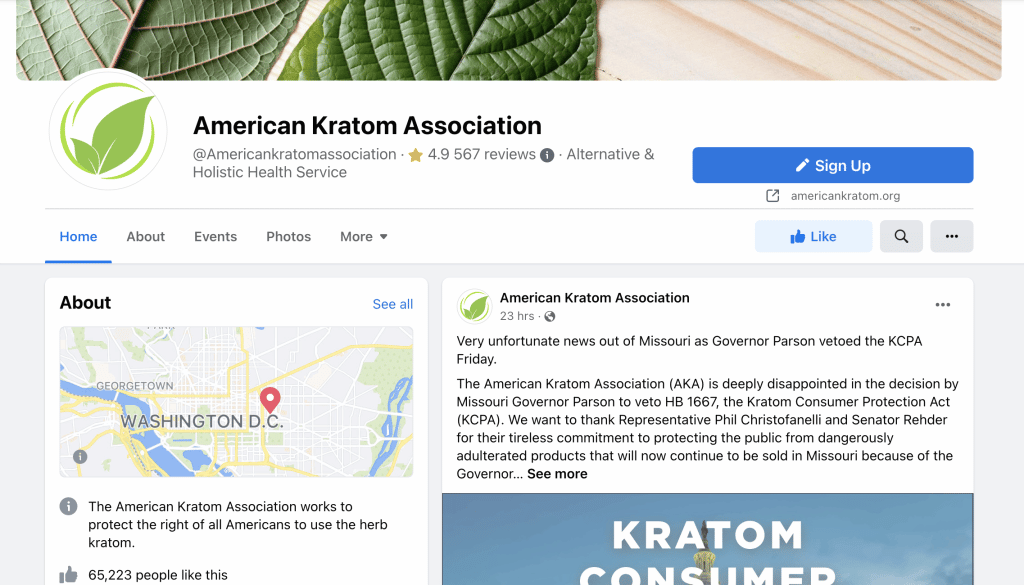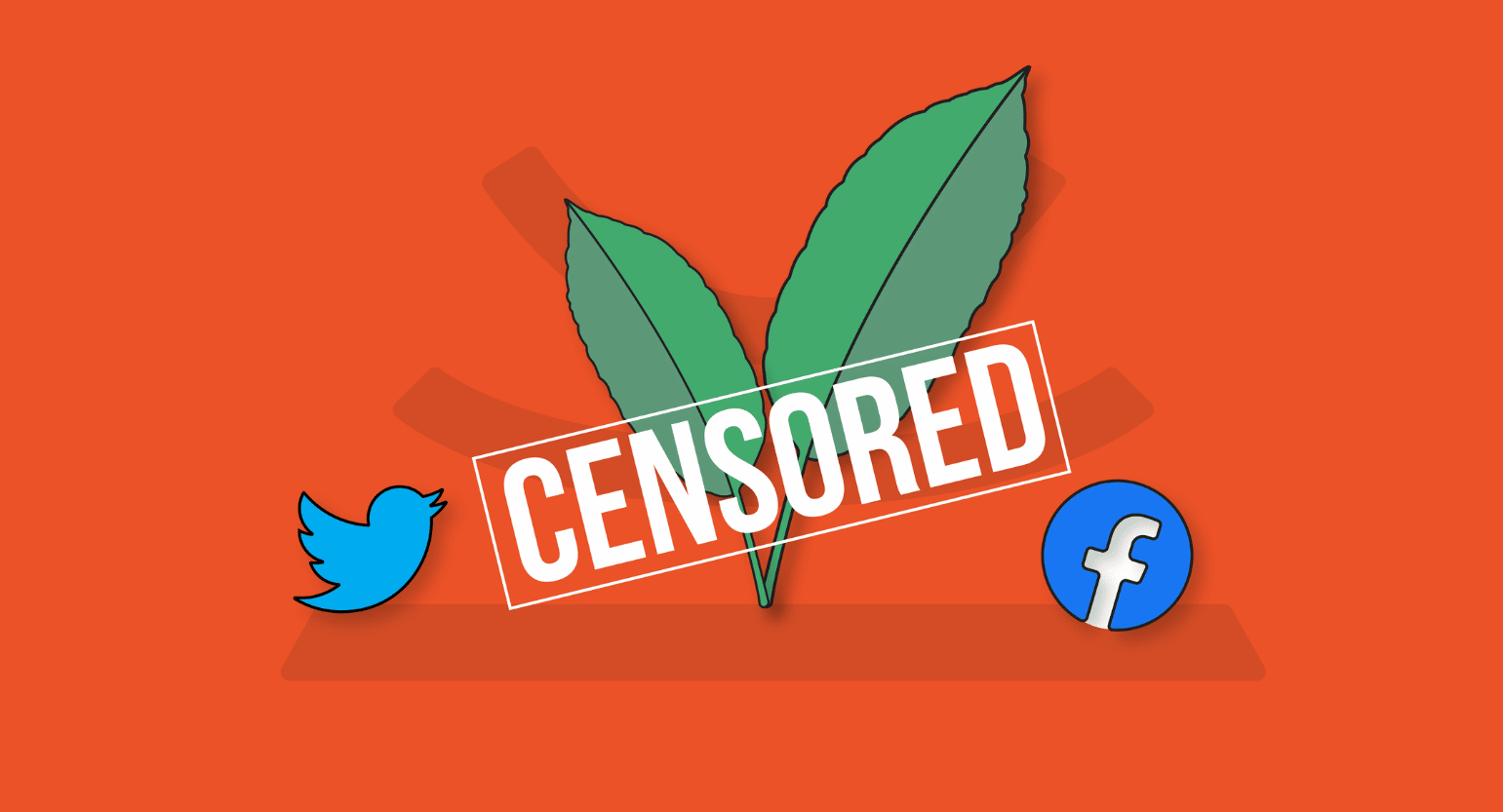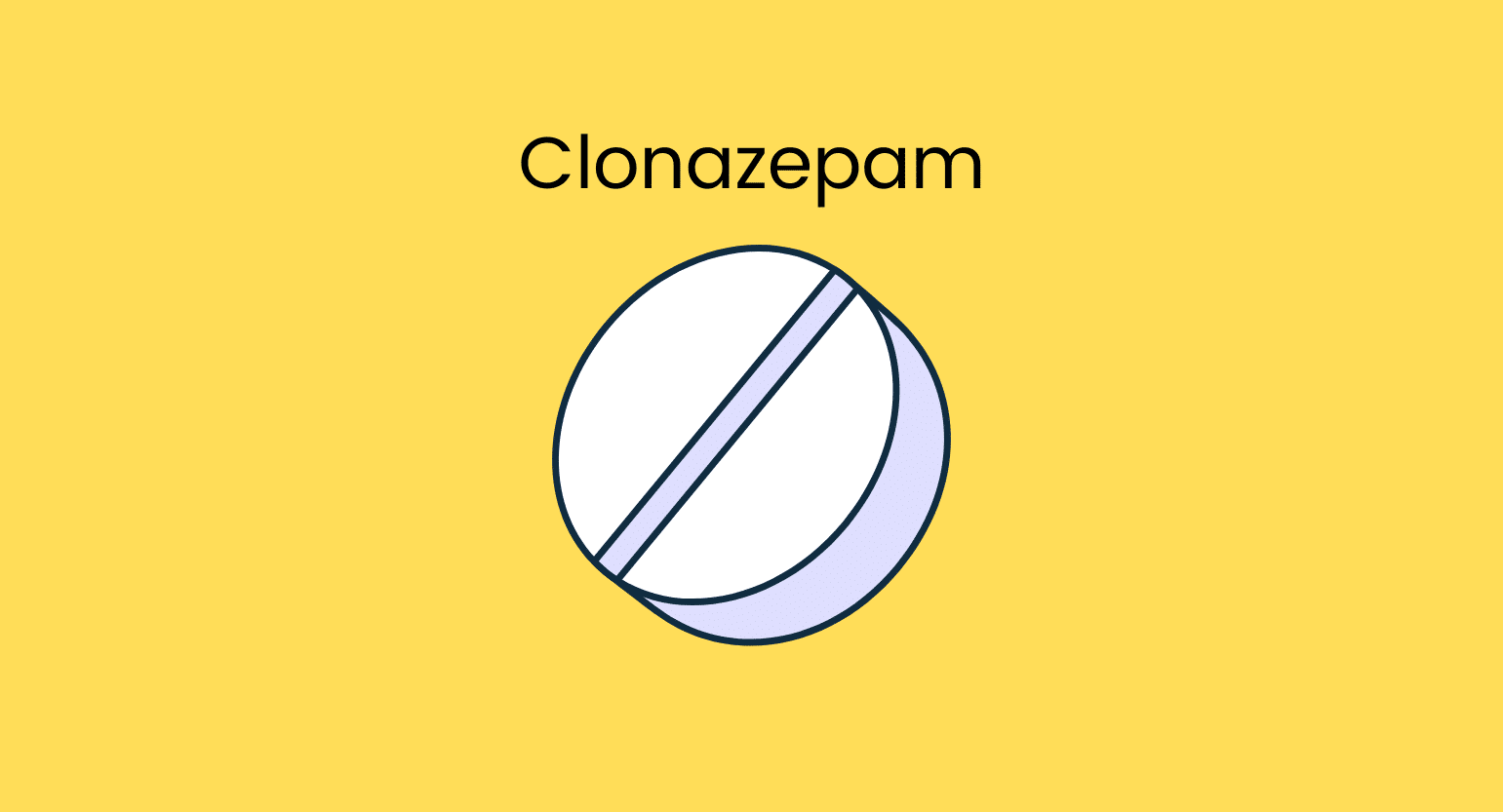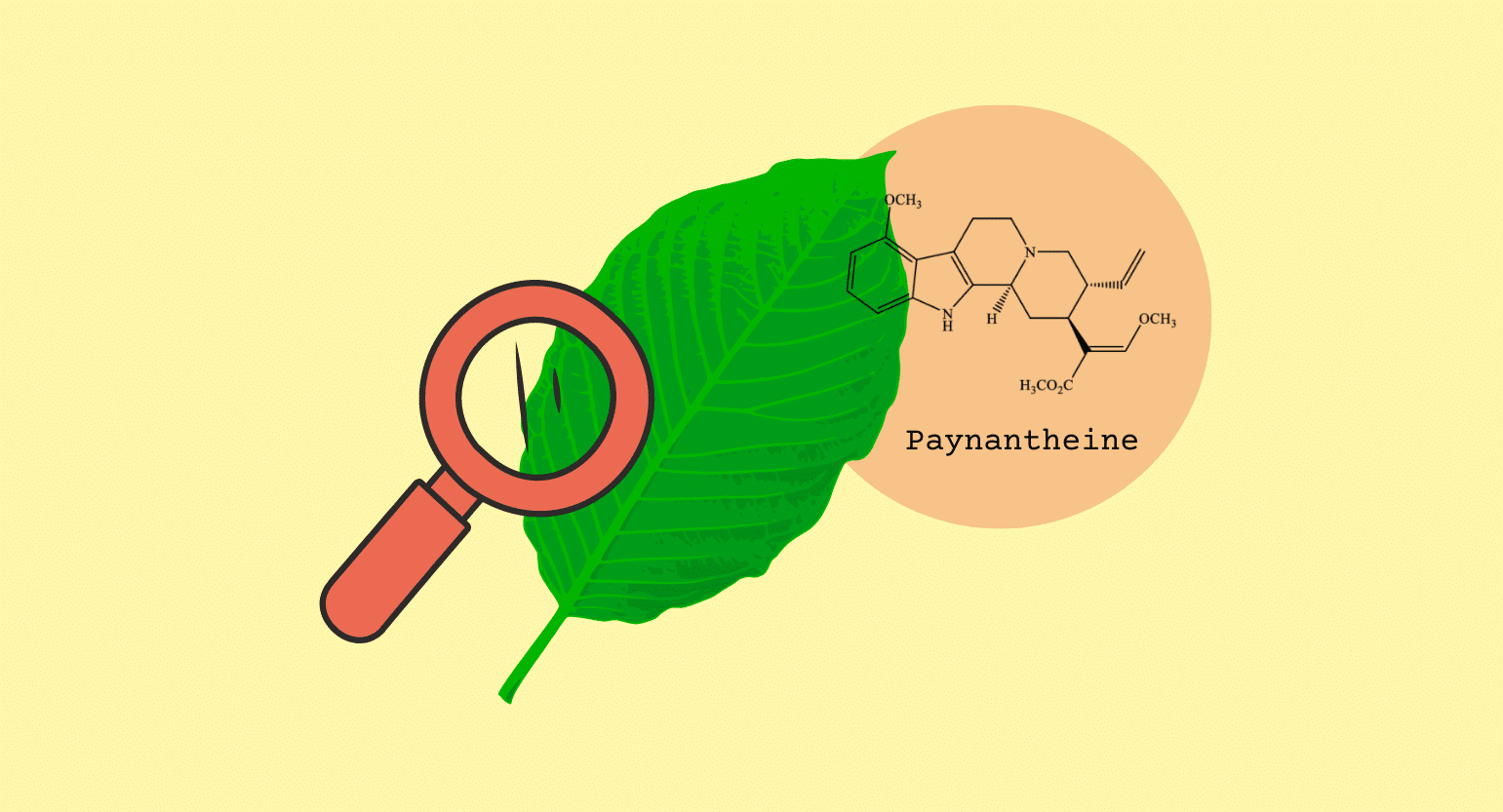Is the Presence Of Kratom On Social Media Restricted?
When it comes to selling kratom or marketing kratom products on social media, it’s simple to see why these types of things would be closely monitored and regulated. However, it is a considerable problem to restrict scientifically-backed information, kratom-related news, and especially stripping individuals of their right to have conversations and discuss the plant.
Businesses and vendors are not allowed to promote kratom. Warning letters are often sent to these companies from the FDA if they are not following marketing limitations and guidelines. In addition, social media platforms are typically privately owned and may restrict content. Since kratom isn’t FDA-approved, it has caused social media giants to overly police kratom.
Big tech gatekeepers are the ones who enforce the rules and dictate what discussions are and are not allowed on their platforms. If you’ve never been bold with what you’re sharing online, you may not even know these virtual “policemen” exist. Unfortunately, many in the kratom community have experienced this acute censorship.
Censoring the Kratom Industry: A Step Backwards
According to the federal government, these companies being censored are selling a legal supplement.
Unfortunately, this scenario is all too familiar. The kratom industry isn’t the first plant-based sector that has been under attack online. Cannabidiol, or CBD, is widely legal across the United States. However, Facebook pages marketing their CBD oil get suspended constantly.
Vendors are not the only ones suffering. Many advocacy groups and informational pages have been immediately targeted, rejected, and forced to switch to private channels to avoid the system’s stringent and unbending rules.
Sharing scientific reports and information with the public is a great way to keep people informed, especially when it is something federally legal still facing incredible scrutiny.
Social media platforms want to keep their users in the dark about kratom. They prohibit companies and individuals from sharing knowledge about something that could be incredibly valuable to others and help them make well-informed decisions.
Freedom of speech has been largely compromised over recent years across various social media networks. The bottom line is that if the subject doesn’t work for the kingpins who own the platform, it will not be a subject at all. Therefore, the only way to fight the censorship of information is to do precisely that — support the organizations that facilitate the spread of facts, evidence, data, and research surrounding the plant.

What Does the Future Hold — For Kratom & For Us?
The kratom industry’s social media presence remains clouded. Tech giants have already begun aggressively surveilling posts, pages, and groups on social media regarding kratom.
Advocates from both political parties have begun calling for more government involvement in how these platforms are policed and monitored. With so much pressure on the government to “do more,” screaming into the void loud enough may force a reaction out of them.
However, we all need to ask ourselves: at what cost? Should we be giving the government more power over these platforms? More control over our lives and our choice to learn about topics we want to know more about or what we can or cannot say? We may see the answer to these questions unfold soon.
If Kratom Is Legal, Why the Backlash?
You mustn’t forget that the DEA once tried to schedule kratom, and the FDA continues to create an aura of misinformation against this natural supplement.
The Food and Drug Administration’s website states:
- “FDA is actively evaluating all available scientific information on this issue and continues to warn consumers not to use any products labeled as containing the botanical substance kratom or its psychoactive compounds, mitragynine, and 7-hydroxymitragynine.”
- “FDA is concerned that kratom, which affects the same opioid brain receptors as morphine, appears to have properties that expose users to the risks of addiction, abuse, and dependence.”
A page updated as of 4/2022 from the FDA’s website states:
- “The agency has received concerning reports about the safety of kratom. FDA is actively evaluating all available scientific information on this issue and continues to warn consumers not to use any products labeled as containing the botanical substance kratom or its psychoactive compounds, mitragynine, and 7-hydroxymitragynine.”
It’s somewhat concerning that the FDA would be stating that they are concerned about the abuse and addiction potential of this natural plant when the website also quotes former Commissioner Gottlieb stating:
- “We know that some patients are using kratom because they believe it can help treat their opioid dependency, but there’s no reliable evidence to support kratom’s effectiveness for this use; and we’re deeply committed to making sure patients have access to safe, effective treatment options. There are three FDA-approved products that are safe and effective for the treatment of opioid use disorder, and we encourage patients to seek advice from their health care professional and pursue treatment for addiction.”
The first red flag is that this last quote is from 2019 and is still, for some reason, viewable on the FDA’s website. One utterly false aspect of this is that former Commissioner Gottlieb openly states that there’s no reliable evidence supporting kratom’s effectiveness in treating opioid dependency.
However, a quick search reveals controlled, legitimate studies that confirm kratom can help these individuals overcome their addictions to opioids and other substances [1, 2]. Many kratom users have real-life, anecdotal evidence that kratom has worked to help them overcome opioid addiction. On top of that — and possibly most importantly — the World Health Organization has reviewed kratom and found it to be safe.
Today, in 2022, the FDA avoids sharing any research about kratom on its website. Yet the former Commissioner’s comment is still there for all to view. It seems as though the FDA is genuinely trying to pretend that positive information about kratom is not being released or discovered.
The FDA has an alarming lack of concern for positive studies that back kratom. Instead of doing what they say they will do, they are creating a mirage about kratom that is incorrect. They are actively pushing misinformation to an unknowing and impressionable audience.
Why does it seem like the FDA and the government are trying so hard to steer people away from kratom? Why do they say they actively evaluate all available scientific information while avoiding groundbreaking ones?
One theory is the threat this natural alternative poses to the pharmaceutical industry. The FDA currently has three approved drugs for opioid dependency: buprenorphine, methadone, and naltrexone.
None of these options are natural, and they all come with quite a few nasty side effects. Also, big pharma happens to profit off all three.
The bottom line is that insisting the government step into police social media will create many more obstacles for a community that has already been forced into a metaphorical box, especially when officials have their agendas to attend to.

What Can I Do To Help?
The American Kratom Association is a reputed kratom advocacy and legal group, perhaps one of the most important in the world. The AKA is the chosen and trusted source for kratom information, advocacy, laws, and recommendations.
The group has recently launched social media profiles successfully, somehow managing to avoid suspension or deletion. Setting up these social media channels without having them torn down immediately is undoubtedly a step in the right direction. However, more work is needed.
As the American Kratom Association builds a better presence on various social media platforms, and as they gain more followers, kratom will get more of the positive attention it needs.
The spread of misinformation, assumptions, and fear-mongering greatly stunts the industry. So be sure to support the AKA on its social media platforms. Following is a fantastic way to do your part and support the industry.
Here’s where you can follow the American Kratom Association (AKA):
- Facebook: American Kratom Association
- Twitter: @TheKratomAssn
- Reddit: Americankratom.org
- YouTube: American Kratom Association
- LinkedIn: American Kratom Association

Conclusion
We all remember as it wasn’t too long ago that it took quite some time for CBD to become as accepted as it is today. There is still quite a bit of resistance from certain officials and lawmakers regarding cannabidiol, even though we have learned so much over the recent years. So this is a comparable way to look at kratom.
The journey surely won’t be easy. However, with the help of dedicated scientists and researchers, enthusiasts, advocacy groups, and individuals just like you, we can move forward and progress to a more kratom-friendly world.
- Wilson, L. L., Harris, H. M., Eans, S. O., Brice-Tutt, A. C., Cirino, T. J., Stacy, H. M., … & McCurdy, C. R. (2020). Lyophilized kratom tea as a therapeutic option for opioid dependence. Drug and Alcohol Dependence, 216, 108310.
- Boyer, E. W., Babu, K. M., Adkins, J. E., McCurdy, C. R., & Halpern, J. H. (2008). Self‐treatment of opioid withdrawal using kratom (Mitragyna speciosa korth). Addiction, 103(6), 1048-1050.









